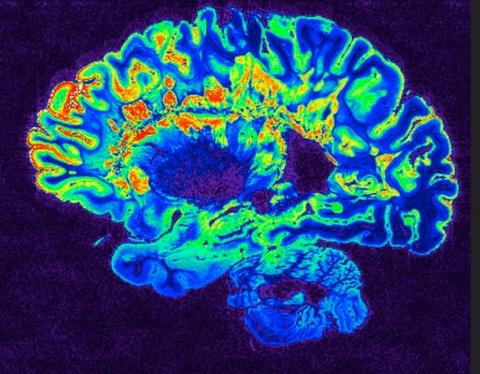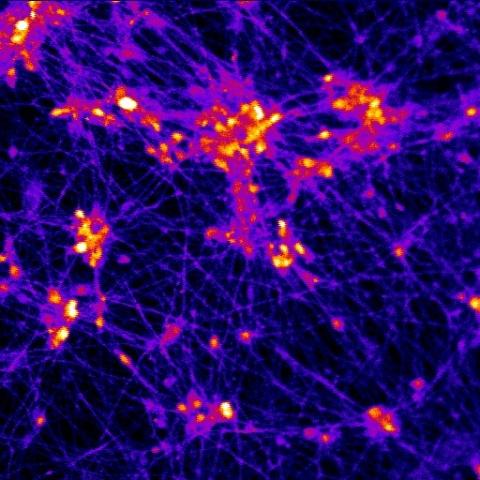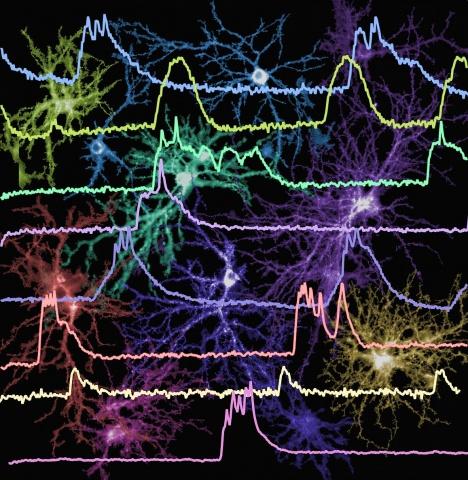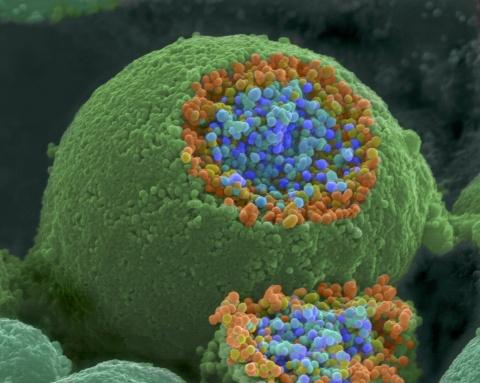Our Duke Parkinson's and Movement Disorders Newsletter provides free news, interviews, and resources for individuals with movement disorders and their care partners.
Sign up to receive the newsletter.
Calakos Elected to U.S. Academy of Medicine
Nicole Calakos, MD, PhD, a professor of neurology and Lincoln Financial Group Distinguished Professor of Neurobiology, has been elected to the U.S. National Academy of Medicine (NAM).
Election to the Academy is considered one of the highest honors in the fields of health and medicine and recognizes individuals who have demonstrated outstanding professional achievement and commitment to service.
Duke recognized as Center of Excellence for Dystonia
This September, the Tyler’s Hope for a Dystonia Cure Foundation will officially recognize Duke Health as the country’s second Center of Excellence for Dystonia. This distinction reflects Duke’s growth as a national leader in dystonia patient care, education, and research as well as a continuing partnership with Tyler’s Hope to help everyone affected by this disease.
U.S. News & World Report ranks Duke University Hospital 23rd in nation for Neurology & Neurosurgery
U.S. News & World Report ranked Duke University Hospital as the top hospital in North Carolina and the 23rd best across the nation for neurology and neurosurgery in its 2022-2023 hospital rankings. The annual rankings, which assessed more than 4,500 hospitals nationwide, analyze and integrate dozens of medical and surgical services.
APP Spotlight: Erika Jacumin, PA-C
As a new physician assistant in 2007, Erika Jacumin, PA-C, saw firsthand the enormous impact deep brain stimulation (DBS) could have on the lives of people living with Parkinson’s disease. Now, she’s helping to manage patients with Parkinson’s disease and other movement disorders in our Morreene Road Clinic. For this week’s “Spotlight” interview, Jacumin talks to us about her previous work helping patients with movement disorders.
Duke Neurology Research Round Up, May 2021
May is Stroke Awareness Month, and members of the Duke Neurology Department were off to an early start. They contributed to six new peer-reviewed journals investigating stroke this April, bringing our total stroke-related articles published this year to more than 20. In addition to this research, our faculty, trainees, and advanced practice providers authored or co-authored 10 other studies and contributed to books advancing our understanding of Alzheimer’s and dementia, brain tumors, epilepsy, and other conditions.
Staff Spotlight: Vera George, BSN, RN
Clinical research is an integral part of developing, testing, and refining new therapies. As one of our Clinical Research Coordinators Vera George is responsible for making sure dozens of these studies at Duke run smoothly and efficiently. For this week’s “Spotlight” interview, George talks to us about the joys of helping current and future patients with myasthenia gravis, movement disorders, and other conditions.
Duke Neurology Research Round Up, April 2022
This March, members of our Department contributed to studies that reveal potential new therapeutic targets for Alzheimer’s disease, help triage patients suffering from traumatic brain injury, address issues contributing to physician burnout, and more. In all, our faculty, staff, students, and trainees contributed to 15 studies published over the past 31 days. Read about them and find links to the original articles below.
Parkinson’s and Movement Disorders
Staff Spotlight: Clare Essex
Professionally, Clare Essex lives in two worlds. Within the lab of Laurie Sanders, PhD, and Carol Colton, PhD, in the Duke Neurology Department, she’s working part-time to improve understandings the genetic underpinnings of neurodegenerative disease. Essex spends the other half of her work week as a medical scribe at UNC REX Hospital in Raleigh.
Duke Neurology Research Round Up, February 2022
The first month of 2022 saw the publication of 18 new peer-reviewed journal articles from members of the Duke Neurology Department. Highlights include a new article in Lancet Neurology discussing the epidemiology, diagnostics, and biomarkers of autoimmune neuromuscular junction disorders, case reports describing the progression and treatment options for rare neurological conditions, and a summary of how the first year of the COVID-19 pandemic affects neurology residency programs in the United States.
Duke Neurology Research Round Up, January 2022
Research authored by members of the Duke Neurology Department published during the final month of 2021 advanced our knowledge of stroke, epilepsy, dystonia, and other conditions.









